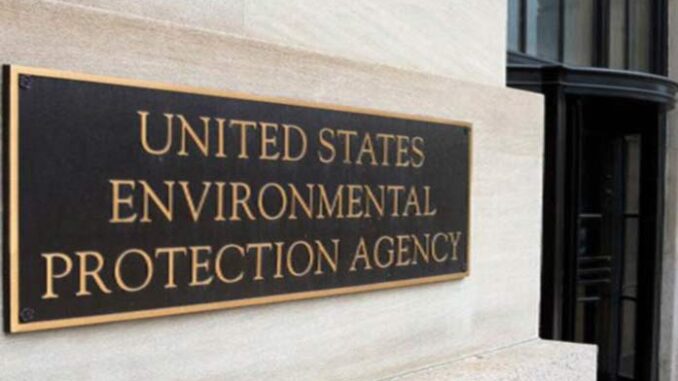
by Matthew Holloway | Feb 5, 2026 | News
By Matthew Holloway |
The Arizona House of Representatives approved bipartisan election integrity legislation on Monday intended to enhance voting oversight and protect the rights of military and overseas voters.
The measure, House Bill 2022, sponsored by State Representative Alexander Kolodin (R-LD3), cleared the full House after receiving bipartisan support. The bill’s passage comes amid ongoing discussions nationwide about election security and voter access.
According to the AZ House GOP, the legislation aims to protect Arizona’s military voters by ensuring election procedures account for service members and other Arizonans living or serving outside the state. Specific provisions in the bill address the handling and timely delivery of ballots for individuals covered under the Uniformed and Overseas Citizens Absentee Voting Act (UOCAVA), a federal law that safeguards absentee voting rights for military and overseas voters.
Specifically, the bill moves the Arizona primary election date to the second-to-last Tuesday in July, to better align with the federal election timeline adopted by the U.S. Congress and prevent military UOCAVA ballots from going uncounted.
In a statement announcing the bill’s passage, Representative Kolodin said, “This bill exists for one reason: to make sure Arizona voters, especially our men and women serving overseas in uniform, are not disenfranchised because Congress changed the rules and failed to check the calendar. HB 2022 locks in the fix that worked in 2024. Military ballots went out on time, and our men and women serving in uniform were able to exercise their right to vote as citizens of the United States. There is no excuse to walk away from something we know works.”
HB 2022 also includes a series of measures intended to strengthen election oversight and transparency, including requirements for updated reporting and procedural reviews by election officials, according to the bill summary.
The following changes will also be made:
- Modifying the deadline for ballot curing in elections that include a federal office to five calendar days, from the previous five business days.
- Broadening the type of locations that may be observed or challenged by party representatives, including ballot replacement locations, voting centers, in-person early voting locations, and emergency voting locations.
- And allowing permitting nomination and local initiative petition forms circulated under the previous law to be considered valid for the July 2026 primary.
State Representative Kolodin chairs the House Ad Hoc Committee on Election Integrity and Florida-style Voting Systems with Co-Chair Rep. John Gillette (R-LD30). The panel was formed to study election procedures and propose electoral reforms. This committee has previously advanced legislation to improve voter identification requirements, tighten security around mail-in and absentee ballots, and restrict certain external influences on Arizona elections.
HB 2022 will now move to the Arizona Senate for further consideration.
Matthew Holloway is a senior reporter for AZ Free News. Follow him on X for his latest stories, or email tips to Matthew@azfreenews.com.

by Matthew Holloway | Feb 4, 2026 | Economy, News
By Matthew Holloway |
Arizona’s growing role as a national hub for data centers could be undermined by municipal regulations driven by concerns over water use, electricity demand, and land use, according to a new policy report released by the Goldwater Institute. The report, Data Centers: A Free Market Model for the Digital Future, argues that Arizona’s success in attracting data center investment stems from long-standing policy choices that favor predictable regulation, private property rights, and a stable legal environment.
The authors note that “artificial intelligence has dramatically accelerated these trends. Demand for data has increased exponentially. How communities, businesses, and policymakers respond to this transformation will shape economic competitiveness for decades to come.”
The report also cautions that a rise in local-level restrictions could threaten the state’s competitive position in the digital infrastructure sector.
William Beard, municipal affairs liaison at the Goldwater Institute and a co-author of the report, explained, “Data centers are the physical backbone of cloud computing, artificial intelligence, digital commerce, and national security. They are core infrastructure, no different in principle from transportation networks, energy production, or large-scale agriculture built to meet the demands of a particular era.”
Beard added that Arizona’s emergence as a leader in data center development has already produced economic benefits for the state. “Arizona is thriving as a leader in data centers, the state is reaping the economic benefits, and policymakers must take steps to ensure that continues,” he said.
According to the report, the Greater Phoenix region has become one of the top data center markets in the United States, with capacity projected to exceed 5,000 megawatts—an expansion of more than 500 percent. Goldwater attributes the dramatic growth to regulatory predictability and policies that encourage investment rather than discourage it, as well as “affordable land; reliable energy; and a legal environment anchored in strong private property rights.”
However, the report also warns, “Continued growth is no guarantee, especially as local governments threaten data centers with restrictive policies.”
Data center developments, such as the 290-acre data center Project Blue in Pima County and Project Baccara in Surprise, have sparked heated controversy at the municipal and county levels.
Citing growing municipal resistance to data center projects, Jen Springman, coalitions manager at the Goldwater Institute and a co-author of the report, said opposition is often rooted in misunderstandings about the impacts of infrastructure.
“Arizona’s advantage is increasingly threatened by a growing municipal-level regulatory backlash, often driven by misconceptions about water use and electricity demand,” Springman said.
Regarding water consumption, Springman said, “Modern data centers are among the most water-efficient industrial facilities ever built.”
The report further challenges claims that data center development is responsible for rising electricity prices. “Electricity prices, meanwhile, are not a data center problem; they are a policy outcome,” Springman said.
She added that misdirecting blame can lead to ineffective policy responses. “Blaming infrastructure for political energy choices obscures the real cause—and produces the wrong solutions,” Springman said.
Goldwater’s report argues that local restrictions do not reduce demand for digital services, but instead risk shifting investment to other states while increasing costs for consumers and businesses.
In a summary of the report’s conclusions posted to X, Goldwater stated, “The question is not whether data centers will exist, but whether Arizona will continue to lead—or retreat in the face of the future.”
Matthew Holloway is a senior reporter for AZ Free News. Follow him on X for his latest stories, or email tips to Matthew@azfreenews.com.

by Matthew Holloway | Feb 3, 2026 | News
By Matthew Holloway |
Courts across Arizona will host statewide oath reaffirmation ceremonies for legal professionals on Thursday, Feb. 12, 2026, as part of Arizona Rule of Law Day, officials with the Arizona Supreme Court and county court systems announced.
The events, scheduled simultaneously in all 15 Arizona counties, will invite attorneys and other legal professionals to reaffirm their Oath of Admission in local courthouse ceremonies. The reaffirmation ceremonies represent a formal recommitment to upholding the rule of law and administering justice.
The statewide celebration coincides with several milestones in American history, including the 250th anniversary of the Declaration of Independence, Abraham Lincoln’s birthday on Feb. 12, and Arizona’s 113th statehood anniversary on Feb. 14.
In announcing the ceremonies, Arizona Supreme Court Chief Justice Ann A. Scott Timmer said renewing the oath on these historic dates underscores the importance of the rule of law in American governance. “On the 250th anniversary of the Declaration of Independence, lawyers across Arizona will come together to renew their oath — a reminder that the rule of law depends on the daily commitment of those sworn to uphold it,” Timmer said. “Reaffirming that oath on February 12, Lincoln’s Birthday, honors our nation’s founding ideals and our shared responsibility to serve justice with integrity and respect for the Constitution.”
Chief Justice Timmer’s remarks will be available for livestream and replay by courts statewide.
As of this report, the Arizona Judicial Branch provided scheduling and location information for ten of the state’s 15 counties.
- Apache County — 11:00 a.m.
Superior Court in Apache County, 70 W. 3rd St. S., St. Johns, AZ — Presiding Judge Michael Latham.
- Cochise County — 11:30 a.m.
Cochise County Board of Supervisors Hearing Room, 1415 W. Melody Lane, Building G, Bisbee, AZ — Presiding Judge David Thorn.
- Coconino County — 11:30 a.m.
Superior Court in Coconino County, 200 N. San Francisco St., Flagstaff, AZ — Presiding Judge Ted S. Reed.
- Graham & Greenlee Counties — 12:00 p.m.
Superior Court in Graham County, 800 Main Street, Safford, AZ — Presiding Judge Michael Peterson and Presiding Judge Jeremy Ford.
- La Paz County — 10:00 a.m.
Superior Court in La Paz County, 1316 Kofa Ave., Parker, AZ — Presiding Judge Marcus Kelley.
- Maricopa County — 10:00 a.m.
State Courts Building, 1501 W. Washington St., Phoenix, AZ — Chief Justice Ann A. Scott Timmer and Presiding Judge Pamela Gates. Livestream available.
- Mohave County — 12:00 p.m.
Mohave County Board of Supervisors Auditorium, 700 W. Beale St., Kingman, AZ — Presiding Judge Steve Moss.
- Pima County — 4:00 p.m.
Superior Court in Pima County, 110 W. Congress St., Tucson, AZ — Presiding Judge Danelle B. Liwski.
- Pinal County — 11:00 a.m.
Superior Court in Pinal County, 971 N. Jason Lopez Circle, Building A, Florence, AZ — Presiding Judge Joseph Georgini.
- Yavapai County — 4:00 p.m.
Superior Court in Yavapai County, Historic Courtroom, 120 S. Cortez St., Prescott, AZ — Presiding Judge John Napper.
The reaffirmation ceremonies aim to highlight the central role that legal professionals play in a justice system where laws are applied fairly and equally. The events are being organized jointly by the Arizona Supreme Court, State Bar of Arizona, and courts statewide.
Yavapai County Presiding Judge John Napper said in a statement, “The Yavapai County Superior Court is honored to host this event. It is always important to take time to remember why we do what we do. I encourage all legal professionals to attend and reaffirm their dedication to the rule of law and justice.”
Correction: A previous version of this story listed the incorrect names of the some of the presiding judges. The story has been updated with their correct names.
Matthew Holloway is a senior reporter for AZ Free News. Follow him on X for his latest stories, or email tips to Matthew@azfreenews.com.

by Matthew Holloway | Feb 1, 2026 | Economy, News
By Matthew Holloway |
Arizona Senate Majority Whip Frank Carroll (R-LD28) introduced a measure on Tuesday, urging the U.S. Congress to clearly define and limit the Environmental Protection Agency’s (EPA) regulatory authority. Carroll and his cosponsors argue that ambiguous federal power threatens jobs and economic growth in Arizona. The proposal, SCM 1004, was advanced by the Arizona Senate Republican Caucus earlier this week.
Carroll’s measure calls on Congress to affirm its role in setting national environmental policy and to draw explicit boundaries around the EPA’s authority under federal law. The memorial highlights that, under the Clean Air Act, the EPA is charged with setting and reviewing National Ambient Air Quality Standards (NAAQS) every five years to protect public health and welfare, but argues that compliance requirements have grown burdensome for businesses and workers.
“Americans deserve clean air, land, and water, but they also deserve an economy that can grow without unnecessary federal interference,” Carroll said in a statement distributed by the Arizona Senate Republican Caucus. He added that the measure urges Congress to ensure EPA regulations are “grounded in law and sound science” and do not impose undue economic restrictions.
In additional remarks included in the memorial, Carroll said he is seeking to define the limits of EPA authority to prevent what he described as regulatory overreach.
“I am working to clearly define the EPA’s powers to prevent regulatory overreach that negatively impacts Arizona’s economy,” Carroll said. “While the Clean Air Act allows for specific emissions regulations, the EPA must not exceed its authority or violate fundamental principles of separation of powers. By preventing bureaucratic overreach, we can protect both the environment and the economic opportunities Arizona families and businesses rely on.”
SCM 1004 directs the Arizona Secretary of State to transmit copies of the memorial to leadership in both chambers of Congress and all members of Arizona’s federal delegation. The measure notes that while the EPA’s mission is to enforce environmental laws as intended by Congress, concerns over overreach have prompted states to call for clearer statutory limits on the agency’s powers.
Carroll’s push reflects broader national debates over the scope of federal environmental regulation. Critics of recent EPA proposals have warned that aggressive regulatory action could affect industries including agriculture, energy production, and water resources. Such debates have included congressional hearings examining the consequences of EPA actions on sectors like American agriculture and rural economies.
The memorial challenges key assumptions underlying EPA policies formulated under Democratic administrations and proponents of policy such as the ‘Green New Deal’, stating:
- “Greenhouse gases like CO2 and methane are not acutely toxic like other hazardous pollutants and have no direct impact on human health;”
- “There is no consensus as to whether global warming is a problem or a benefit or how current temperatures fit into the broader climate context;”
- “Global temperatures, droughts, floods and hurricanes have not increased with increasing global CO2 emissions;”
The memorial further refutes the EPA’s authority regarding greenhouse gas emissions, stating directly: “The EPA has no explicit statutory authority to regulate greenhouse gases.”
The memorial comes amid ongoing statewide discussions about the balance between environmental protection and economic growth, with Arizona lawmakers questioning the appropriate reach of federal agencies in areas ranging from air and water quality to land use and energy development.
SCM 1004 was co-sponsored by a group of Republican Arizona Senators, including Hildy Angius (R-LD30), David Gowan (R-LD19), Kevin Payne (R-LD27), Janae Shamp (R-LD29), and Thomas “T.J.” Shope (R-LD16).
Matthew Holloway is a senior reporter for AZ Free News. Follow him on X for his latest stories, or email tips to Matthew@azfreenews.com.

by Matthew Holloway | Jan 31, 2026 | News
By Matthew Holloway |
A bill requiring local law enforcement agencies to notify federal immigration authorities when arresting illegal immigrants advanced out of committee Monday in the Arizona Legislature.
Senate Bill 1055, sponsored by Sen. Wendy Rogers (R-LD7), cleared the Military Affairs and Border Security Committee with Republican support on Monday. The bill would require local law enforcement to notify U.S. Immigration and Customs Enforcement (ICE) or U.S. Customs and Border Protection (CBP) “immediately when a law enforcement official or agency arrests an individual who is unlawfully present in the United States.”
“When someone is under arrest and in the country illegally, local officers should be able to notify federal authorities without hesitation,” Rogers said in a statement. “Clear laws enhance public safety and honor those who serve, including our veterans who defend the rule of law. Arizona should prioritize clarity over confusion. If an individual is unlawfully present and under arrest, local officers must be able to inform federal authorities immediately to prevent dangerous individuals from being released back into our neighborhoods. This legislation promotes cooperation, upholds the rule of law, and respects our public safety personnel.”
The legislation is intended to clarify existing federal and state statutes governing the sharing of immigration status information among agencies and to establish specific circumstances in which notification is mandatory.
During the committee hearing, the bill drew Republican support and Democratic opposition. Rural Arizona Action, which OpenSecrets identifies as a Democrat-aligned advocacy group, argued that Immigration and Customs Enforcement is “out of control” during the hearing, according to AZCentral. The outlet reported that disruptive protesters interrupted the hearing on January 26 using whistles and chanting “Shame! Shame!”
SB 1055 passed out of the committee by a 4-3 vote, advancing in the legislative process with Arizona Senate GOP leadership stating, “SB 1055 is set for a full Senate vote after passing the Military Affairs and Border Security Committee with Republican support, despite Democratic opposition and hostile rhetoric during yesterday’s hearing.”
However, according to Legiscan, the bill is set to be heard first by the Senate Rules Committee before being considered on the floor, per standard legislative procedure. As of this report, the bill does not yet appear on the Committee’s agenda.
Senate Republican leaders said in the press release that the measure was designed to reduce confusion for officers on the front lines and “ensure that communities can trust that the law is applied consistently.”
Matthew Holloway is a senior reporter for AZ Free News. Follow him on X for his latest stories, or email tips to Matthew@azfreenews.com.





